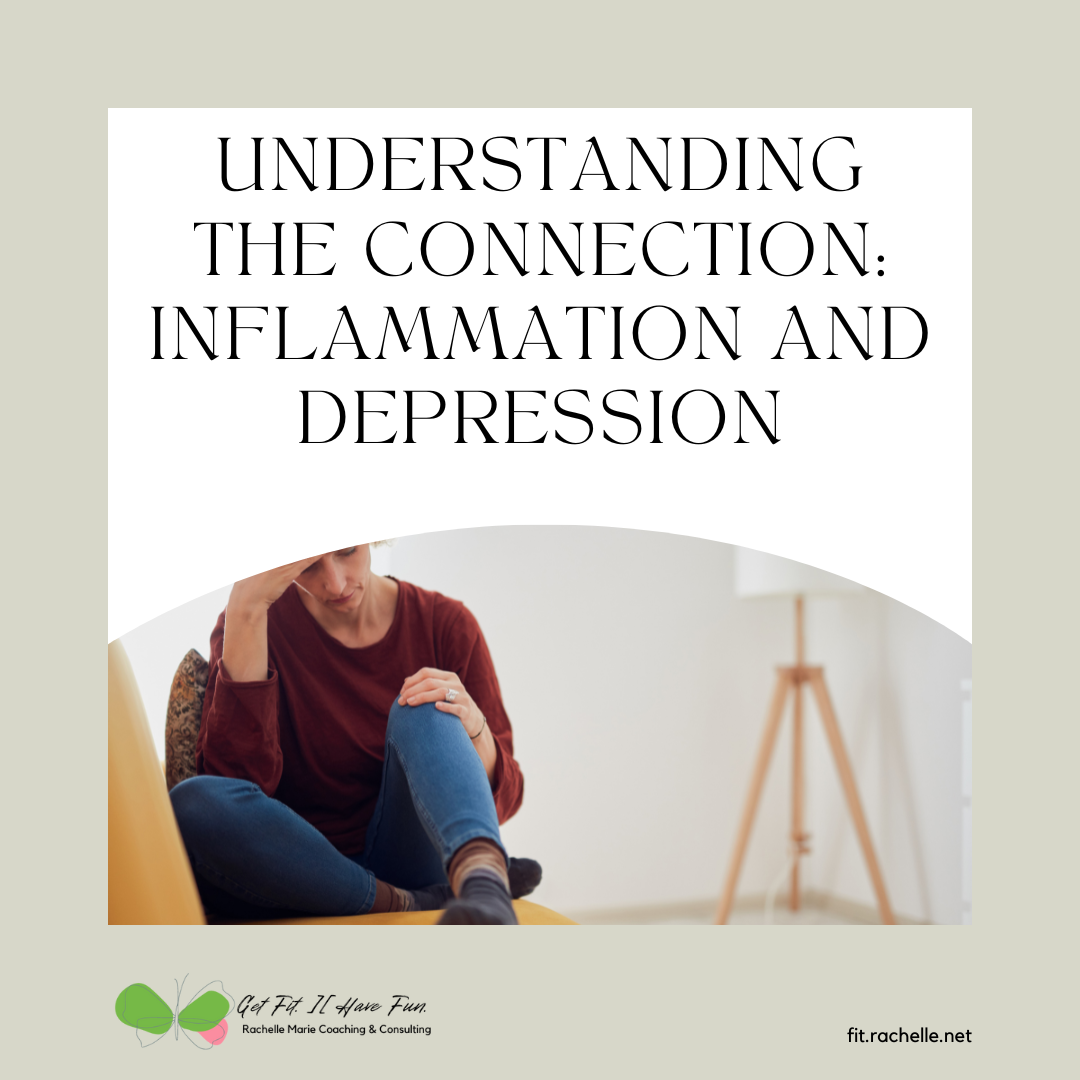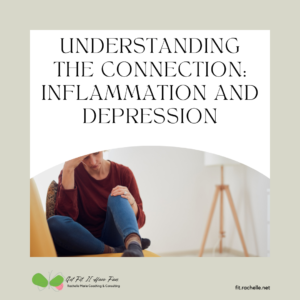Understanding the Connection: Inflammation and Depression


In recent years, a growing body of research has illuminated a fascinating and complex relationship between inflammation and depression. This connection has significant implications for how we understand, diagnose, and treat depression, offering new perspectives and hope for those affected.
Traditionally, depression has been viewed primarily as a neurological disorder, influenced by an imbalance of neurotransmitters in the brain. However, scientists are now uncovering how the immune system, particularly inflammation, plays a crucial role in this condition.
Inflammation is the body’s natural response to infection or injury, a protective effort involving immune cells, blood vessels, and molecular mediators. While essential for healing, chronic inflammation has been linked to a range of health issues, including heart disease, diabetes, and now, intriguingly, depression.
Studies have shown that people with depression often have higher levels of inflammatory markers, such as C-reactive protein (CRP), in their blood. This correlation suggests a bidirectional relationship where inflammation can lead to depression, and depression, in turn, can promote inflammation.
Research has also demonstrated that patients who do not respond to traditional antidepressants have higher levels of inflammation. This observation has led to clinical trials investigating the efficacy of anti-inflammatory treatments as potential therapies for depression, with some promising results.
The link between inflammation and depression is believed to be multifaceted. Inflammatory cytokines, proteins released by the immune system, can cross the blood-brain barrier and influence brain function. They can disrupt the metabolism of neurotransmitters such as serotonin and dopamine, which are crucial for mood regulation.
Additionally, inflammation can affect the brain’s plasticity, reducing the ability of neurons to form new connections. This impairment can lead to the symptoms commonly associated with depression, such as feelings of sadness, lack of interest in activities, and cognitive difficulties.
Understanding the role of inflammation in depression opens new avenues for treatment. For individuals with treatment-resistant depression, targeting inflammation could be a promising strategy. This approach might include lifestyle changes to reduce inflammation, such as diet, exercise, and stress management, alongside conventional antidepressants or anti-inflammatory medication.
Moreover, this connection underscores the importance of holistic health practices in preventing depression. By managing chronic inflammation through a healthy lifestyle, it may be possible to reduce the risk of developing depression.
The exploration of the link between inflammation and depression represents a significant shift in our understanding of mental health. It highlights the intricate interplay between the mind and the body, suggesting that our mental health is not solely determined by brain chemistry but also by our overall physical health and immune system.
As research continues to evolve, it offers hope for more effective treatments and preventative strategies, moving towards a more integrated approach to mental health that considers both the mind and the body.
In light of the compelling evidence linking inflammation to depression, one actionable step you can take towards better mental health is adopting the Autoimmune Protocol (AIP). The AIP diet is designed to reduce inflammation and heal the immune system, with a focus on nutrient-dense foods and the elimination of potential inflammatory triggers.
By targeting inflammation at its source, the AIP diet offers a holistic approach to managing the symptoms of depression. The gut-brain axis, a critical pathway through which the gastrointestinal tract communicates with the brain, plays a key role in this process. A healthy gut can lead to reduced inflammation and improved mood and cognitive function.
This is just one piece of the puzzle, but it can make a huge difference. You should talk to your medical professional if you are experiencing health issues, such as depression. And, if you are interested in exploring whether taking a holistic approach involving mindset work and diet, then I’d ask you to consider 16 Weeks to You, But Feeling Better.
—
Resources
Berk, M., Williams, L. J., Jacka, F. N., O’Neil, A., Pasco, J. A., Moylan, S., Allen, N. B., Stuart, A. L., Hayley, A. C., Byrne, M. L., & Maes, M. (2013). So depression is an inflammatory disease, but where does the inflammation come from?. BMC medicine, 11, 200. https://doi.org/10.1186/1741-7015-11-200
Beurel, E., Toups, M., & Nemeroff, C. B. (2020). The Bidirectional Relationship of Depression and Inflammation: Double Trouble. Neuron, 107(2), 234–256. https://doi.org/10.1016/j.neuron.2020.06.002
Lee CH, Giuliani F. (2019) The Role of Inflammation in Depression and Fatigue. Frontiers in Immunology.10:1696. DOI: 10.3389/fimmu.2019.01696. PMID: 31379879; PMCID: PMC6658985.
Wallace, C. J. (2020). Peas over Prozac? Examining the Link Between Depression, Inflammation and Diet Available from ProQuest Dissertations & Theses Global.





